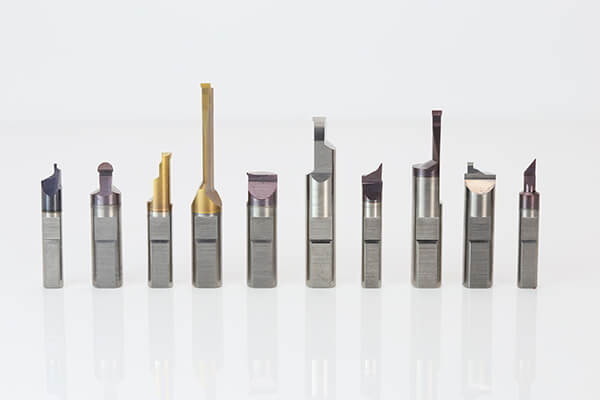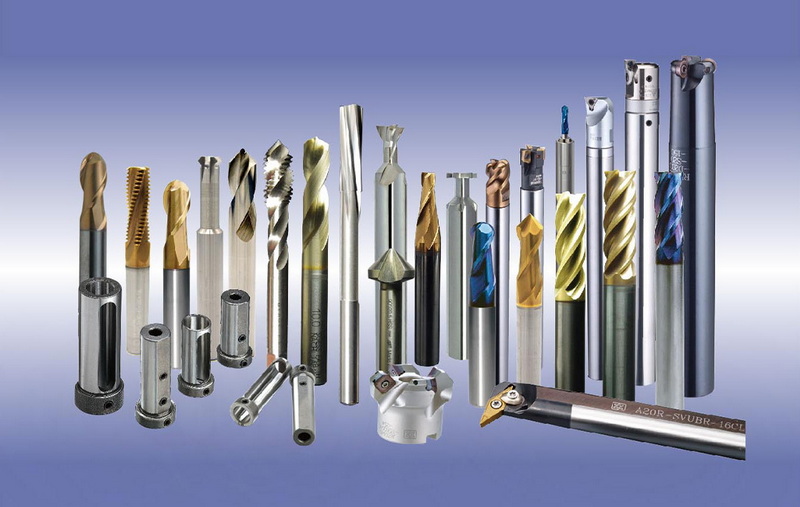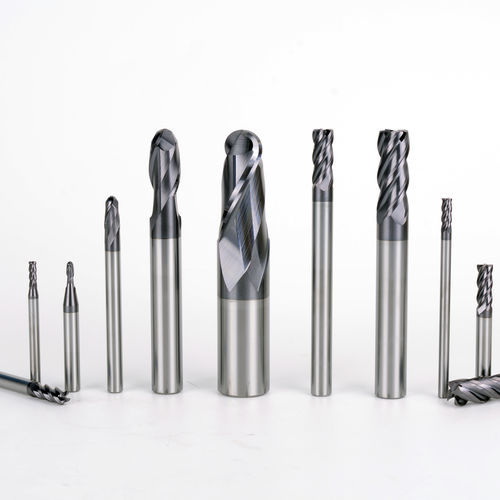Content Menu
● What Is Tungsten Carbide?
>> Key Properties
● How Is Tungsten Carbide Made?
● Applications of Tungsten Carbide
>> 1. Cutting Tools
>> 2. Mining and Drilling
>> 3. Aerospace
>> 4. Jewelry
>> 5. Medical Instruments
>> 6. Defense Industry
>> 7. Sports Equipment
>> 8. Wear Parts
● Advantages of Tungsten Carbide
● Challenges of Using Tungsten Carbide
● Industries That Rely on Tungsten Carbide
>> Manufacturing
>> Oil and Gas
>> Construction
>> Electronics
>> Automotive
● Conclusion
● FAQ: Frequently Asked Questions About Tungsten Carbide
>> 1. What makes tungsten carbide so hard?
>> 2. How does tungsten carbide compare to steel?
>> 3. Can tungsten carbide be recycled?
>> 4. What industries benefit most from tungsten carbide?
>> 5. Is tungsten carbide suitable for wet environments?
● Citations:
Tungsten carbide is an extraordinary material known for its unmatched hardness, durability, and versatility. A compound of tungsten and carbon, it has revolutionized industries ranging from manufacturing to aerospace. This article explores the properties, applications, and benefits of tungsten carbide in detail.

What Is Tungsten Carbide?
Tungsten carbide (chemical formula: WC) is a dense, hard compound made by combining equal parts of tungsten and carbon atoms. In its raw form, it appears as a fine gray powder but can be sintered into various shapes for industrial use. Its hardness is second only to diamond, and it is approximately three times stiffer than steel.
Key Properties
- Hardness: Ranks 9-9.5 on the Mohs scale, making it highly resistant to wear and abrasion.
- Density: Twice as dense as steel, offering stability in high-impact environments.
- Thermal Resistance: Can withstand extreme temperatures, with a melting point of 2,870°C (5,200°F).
- Corrosion Resistance: Exhibits excellent resistance to acids and alkalis.
- Electrical Conductivity: Comparable to metals like vanadium.
How Is Tungsten Carbide Made?
Tungsten carbide is manufactured through a process called *sintering*. Tungsten powder is mixed with carbon black and heated at high temperatures. Metallic binders like cobalt or nickel are often added to improve toughness and ductility.
Applications of Tungsten Carbide
Tungsten carbide's unique properties make it indispensable across various industries:
1. Cutting Tools
Tungsten carbide is widely used in cutting tools such as drills, saw blades, and milling cutters. Its hardness allows for precision machining of tough materials like steel and titanium while maintaining sharpness under high-stress conditions.
2. Mining and Drilling
In mining operations, tungsten carbide drill bits withstand abrasive conditions, enhancing tool life and efficiency. It is also used in tunnel boring machines and oil drilling equipment.
3. Aerospace
Aerospace components such as turbine blades are coated with tungsten carbide for wear resistance and thermal stability in high-temperature environments.
4. Jewelry
Tungsten carbide's durability makes it popular for wedding bands and other jewelry. Its scratch resistance ensures long-lasting shine.
5. Medical Instruments
Surgical tools made from tungsten carbide maintain sharp edges longer than traditional materials, improving precision during procedures.
6. Defense Industry
Tungsten carbide plays a vital role in military applications such as armor-piercing ammunition and protective coatings for vehicles due to its hardness and density.
7. Sports Equipment
High-performance sports equipment like ski poles often incorporates tungsten carbide tips for enhanced durability on rough surfaces.
8. Wear Parts
Components like bearings, nozzles, and bushings benefit from tungsten carbide's ability to resist wear under heavy loads or abrasive conditions.

Advantages of Tungsten Carbide
- Longevity: Extends the lifespan of tools and machinery.
- Efficiency: Reduces downtime due to wear or failure.
- Precision: Offers unmatched accuracy in machining and cutting.
- Cost Savings: Though initially expensive, its durability reduces long-term costs.
- Eco-Friendly Recycling: Used tungsten carbide can be reclaimed for new applications, minimizing waste.
Challenges of Using Tungsten Carbide
Despite its advantages, tungsten carbide has some limitations:
- High production costs compared to alternatives like steel.
- Limited ductility, making it prone to brittle fractures under extreme stress.
- Specialized maintenance requirements for coated components.
- Environmental concerns related to mining tungsten ore.
Industries That Rely on Tungsten Carbide
Manufacturing
Used in molds for plastic injection molding and wear-resistant components in machinery.
Oil and Gas
Protects equipment like valve stems and pump impellers from corrosion and abrasion in harsh environments.
Construction
Drill bits and saws made from tungsten carbide are essential for cutting through concrete and asphalt.
Electronics
Precision tools cut delicate electronic components without damaging them.
Automotive
Tungsten carbide coatings improve the longevity of engine parts such as piston rings by reducing frictional wear.
Conclusion
Tungsten carbide is a game-changing material that combines hardness, durability, and versatility. From industrial tools to jewelry, its applications are vast and impactful. While it has some limitations, its benefits far outweigh the drawbacks in demanding environments.

FAQ: Frequently Asked Questions About Tungsten Carbide
1. What makes tungsten carbide so hard?
Tungsten carbide's hardness comes from its molecular structure—a strong bond between tungsten and carbon atoms. This structure ranks just below diamond on the Mohs scale.
2. How does tungsten carbide compare to steel?
Tungsten carbide is three times harder than steel and maintains sharpness longer under high temperatures or abrasive conditions.
3. Can tungsten carbide be recycled?
Yes, worn-out tools made from tungsten carbide can be reclaimed and reused, reducing waste and conserving resources.
4. What industries benefit most from tungsten carbide?
Industries such as mining, oil & gas, aerospace, manufacturing, construction, electronics, medical tools, automotive engineering, defense sectors, and even fashion benefit significantly from its properties.
5. Is tungsten carbide suitable for wet environments?
Yes, it resists corrosion effectively, making it ideal for wet or chemically aggressive settings like oil drilling or marine applications.
Citations:
[1] https://www.linde-amt.com/resource-library/articles/tungsten-carbide
[2] https://en.wikipedia.org/wiki/Tungsten_carbide
[3] https://www.asbindustries.com/coating-materials/carbide-coating-materials/tungsten-carbide-coatings
[4] https://www.alamy.com/stock-photo/tungsten-carbide.html
[5] https://www.retopz.com/57-frequently-asked-questions-faqs-about-tungsten-carbide/
[6] https://www.thermalspray.com/questions-tungsten-carbide/
[7] https://www.sollex.se/en/blog/post/about-cemented-tungsten-carbide-applications-part-1
[8] https://www.tungco.com/insights/blog/5-tungsten-carbide-applications/
[9] https://www.tungco.com/insights/blog/frequently-asked-questions-used-tungsten-carbide-inserts/
[10] https://rrcarbide.com/understanding-tungsten-carbide-composition-uses-and-expertise/
[11] https://eternaltools.com/blogs/tutorials/tungsten-carbide-an-informative-guide
[12] https://tuncomfg.com/about/faq/
[13] http://machinetoolrecyclers.com/rita_hayworth.html
[14] https://www.aemmetal.com/news/tungsten-vs-tungsten-carbide-guide.html
[15] https://www.larsonjewelers.com/pages/the-pros-cons-of-tungsten-carbide-rings
[16] https://www.tungstenman.com/tungsten-carbide-tools-the-pros-and-cons.html
[17] https://consolidatedresources.com/blog/10-facts-about-tungsten-carbide/
[18] https://rrcarbide.com/understanding-tungsten-carbide-composition-uses-and-expertise/
[19] https://www.larsonjewelers.com/pages/tungsten-rings-pros-cons-facts-myths
[20] https://www.imetra.com/tungsten-carbide-material-properties/
[21] https://www.thermalspray.com/how-is-tungsten-carbide-currently-being-used/
[22] https://www.youtube.com/watch?v=g_YpNM1FBhs
[23] https://www.allied-material.co.jp/en/techinfo/tungsten_carbide/use.html
[24] https://www.reddit.com/r/MTB/comments/wveezc/psa_remove_rings_before_your_rides_especially_if/
[25] https://www.azom.com/article.aspx?ArticleID=1203
[26] https://www.shutterstock.com/search/tungsten-carbide
[27] https://www.reddit.com/r/pics/comments/1aoqq0/a_perfectly_polished_tungsten_carbide_cube/
[28] https://www.gwstoolgroup.com/understanding-the-different-types-of-carbide-in-cutting-tools/
[29] https://www.istockphoto.com/photos/carbide-tools
[30] https://stock.adobe.com/search?k=tungsten+carbide
[31] https://www.freepik.com/free-photos-vectors/tungsten
[32] https://www.shutterstock.com/search/tungsten-drill-bits
[33] https://periodictable.com/Elements/074/pictures.html
[34] https://bluestaralloys.com/tungsten-carbide-scrap-maximize-your-profits-and-boost-your-bottom-line/
[35] https://stock.adobe.com/search?k=carbide
[36] https://www.shutterstock.com/search/tungsten
[37] https://www.tungstenringsco.com/faq
[38] https://www.reddit.com/r/weddingplanning/comments/6hlypp/questions_about_tungsten_carbide_rings/
[39] https://tuncomfg.com/engineered-solutions/tools-by-application/
[40] https://www.hpnonline.com/sterile-processing/article/55233008/tungsten-carbide-versus-villains-is-it-rust-or-corrosion
[41] https://www.reddit.com/r/askscience/comments/f02z1/materials_science_question_why_does_an_extremely/
[42] https://www.eng-tips.com/threads/question-regarding-tungsten-carbide-brazing.293005/
[43] https://www.azom.com/properties.aspx?ArticleID=1203
[44] https://www.bladeforums.com/threads/tungsten-carbide-question.524307/
[45] https://www.yatechmaterials.com/en/cemented-carbide-industry/answers-to-questions-about-the-use-of-tungsten-carbide-edm-blocks/
[46] http://www.carbidetechnologies.com/faqs/
[47] https://nanopartikel.info/en/knowledge/materials/tungsten-carbide/
[48] https://www.sollex.se/en/blog/post/about-cemented-tungsten-carbide-applications-part-1
[49] https://eurobalt.net/blog/2022/03/28/all-the-applications-of-tungsten-carbide/
[50] https://www.carbide-usa.com/top-5-uses-for-tungsten-carbide/
[51] https://www.istockphoto.com/photos/tungsten-carbide?page=2
[52] https://create.vista.com/photos/tungsten-carbide/
[53] https://www.istockphoto.com/photos/tungsten-carbide-drill-bits
[54] https://www.istockphoto.com/photos/tungsten-carbide
















